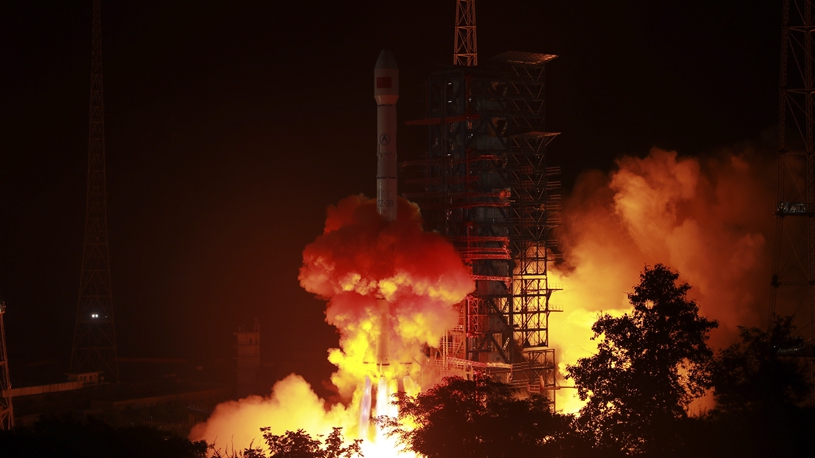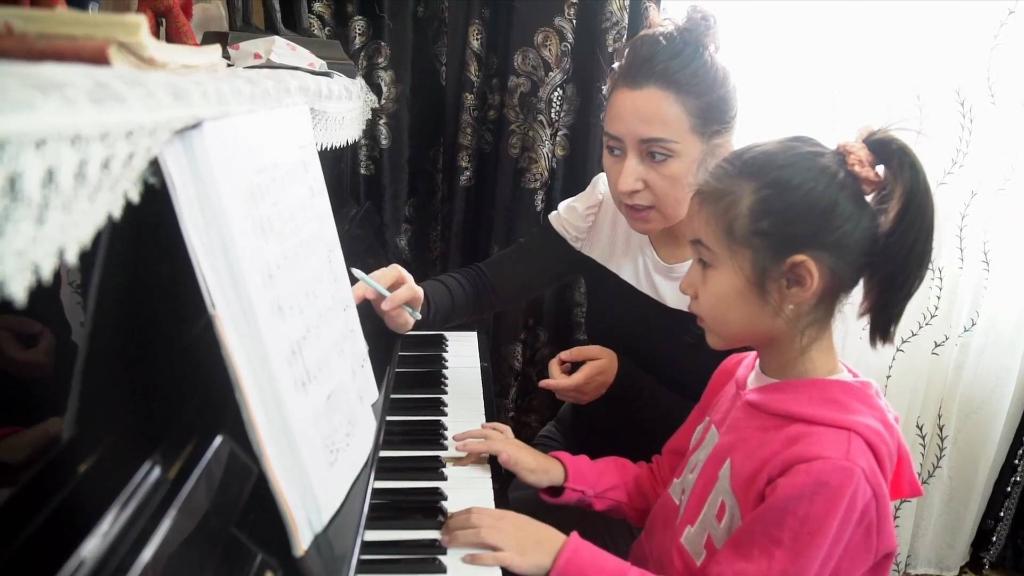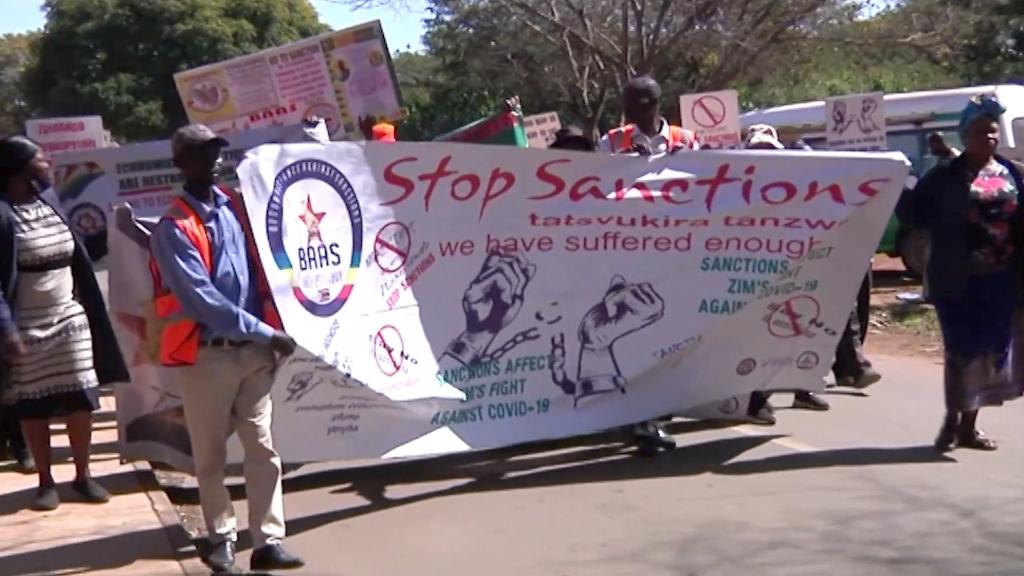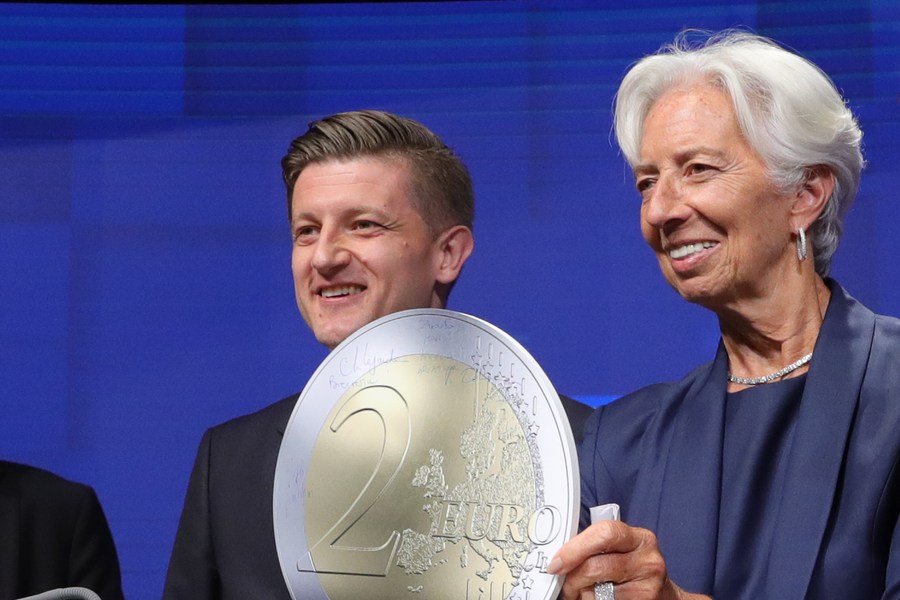
Croatian Deputy Prime Minister and Minister of Finance Zdravko Maric (L) and European Central Bank (ECB) President Christine Lagarde attend a signing ceremony on adoption of the euro by Croatia in Brussels, Belgium, July 12, 2022. (Xinhua/Zheng Huansong)
The ministers also adopted the final three legal acts that enable Croatia to join the eurozone as its 20th member and introduce the euro as its currency on Jan. 1, 2023.
BRUSSELS, July 13 (Xinhua) -- The economic situation in Europe and specifically the impact of the Russia-Ukraine conflict and the scheduled adoption of the euro by Croatia, topped the agenda of the meeting here on Tuesday of the economy and finance ministers of the European Union (EU) member states.
During the Economic and Financial Affairs Council (ECOFIN) meeting, Czech Finance Minister Zbynek Stanjura presented the Czech Republic's priorities during the next six months of its Presidency of the Council of the EU, which include the implementation of the Recovery and Resilience Facility (RRF) and the RePowerEU package; ending the EU's dependence on Russian fossil fuels; a return to fiscal discipline; and completing the implementation of the global minimum tax.
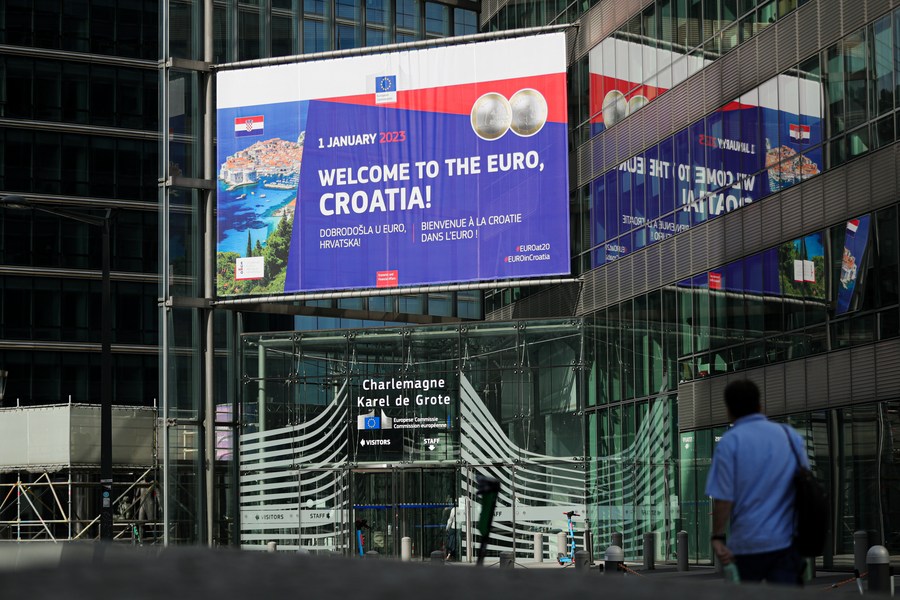
A pedestrian walks near a poster writing "Welcome to the Euro, Croatia!" in Brussels, Belgium, July 12, 2022. (Xinhua/Zheng Huansong)
The Council decided to provide 1 billion euros (1 billion U.S. dollars) in additional macro-financial assistance to Ukraine.
The ministers also adopted the final three legal acts that enable Croatia to join the eurozone as its 20th member and introduce the euro as its currency on Jan. 1, 2023.
"Croatia has successfully completed all the required economic criteria and they will pay in euros as of Jan. 1, 2023," Stanjura said.
"Using the euro will make it easier to invest in the country. It will lower barriers for businesses and remove currency exchange costs. It can help to stabilize interest rates, making it easier and cheaper for people and companies to borrow," said Valdis Dombrovskis, executive vice president of the European Commission.
Croatia's currency is the kuna. The exchange rate of 7.53 kuna per euro was set by the European Central Bank (ECB) when it accepted the Croatian currency to the Exchange Rate Mechanism (ERM II) in 2020.
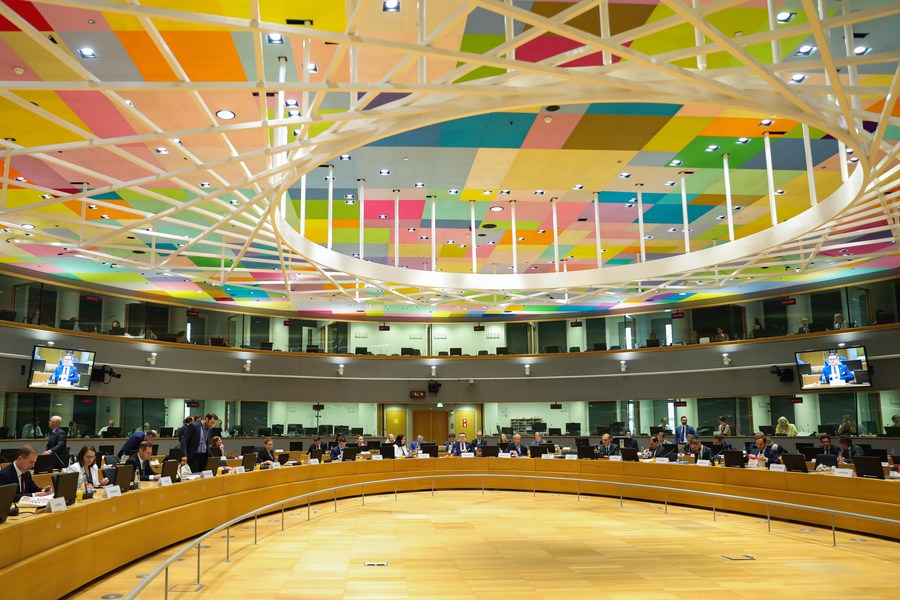
Photo taken on July 12, 2022 shows the meeting of the EU Economic and Financial Affairs Council in Brussels, Belgium. (Xinhua/Zheng Huansong)■

